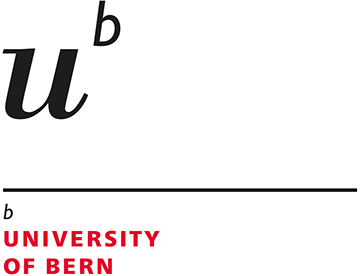Head in the exoplanets
Professor Kevin Heng, a leading expert on exoplanets, is working on answering one of the bigger questions of our time: Are we alone in the universe?
Author: Faryal Mirza, International Relations Office

Kevin Heng: The big question is: Are we alone? My general interest is to look for planets beyond the solar system known as exoplanets. Beyond finding out how many they are and how they are arranged in respect to each other, I would like to find out what their environments are like, if they are habitable and if life exists on them.
EXOKLEIN addresses a very exciting development in the field. It turns out that the sun is not a typical star in the universe. Typical stars are smaller and cooler than the sun. They are called red dwarfs and recent excitement came from the discovery of seven Earth-sized or smaller planets around one such star known as TRAPPIST-1. In fact, one of my colleagues at the Center for Space and Habitability (CSH), Brice-Oliver Demory, was one of the co-discoverers.
No one had expected that red dwarfs would host any kind of planets, much less Earth-sized exoplanets, so the next natural question is: Are these exoplanets suitable for hosting life as we know it or as we do not? The only way to answer that is to understand what kind of chemistry and geology exists on these exoplanets around red dwarfs. This is what EXOKLEIN hopes to achieve.

In the last 10 years or so, astronomers have figured out how to answer this question from faraway. They can look at planets and orbiting stars from a distance and ask if these planets have atmospheres. They can then ask follow-up questions about what these atmospheres are made of. We are now at the point in time where this is a science.
This is the science that my research group does. For the first time in history, we can actually tell you about the molecules within an atmosphere and its chemistry. That is the relatively straightforward part. The difficult part is the big follow-up question: Is this particular chemistry due to geology, physics or biology?
You could work with experts from those fields. We have definitely done so in the past. But, from my own experience, it is much more effective if part of you becomes these people.
When I started out, I was a traditional astrophysicist. As I went along, I found that I had to learn atmosphere and climate science, so I did. I picked it up to the point that I could have conversations with people in those fields. Currently, I am picking up geochemistry.
People often ask me what the point is of a doing PhD. My answer is that it teaches you how to learn. For me, it is a journey of self-discovery. When you come out from that journey, you should be able to learn most things when you put your mind to it. The answer may be surprising but one of the impediments to learning is the ego.
Once you get your ego out of the way, it becomes much easier. If you approach a subject with no pride or preconceptions about whether it is easy or difficult, you can just pick it up. That is the way it has been for me.
Like most people, I wanted to be an astronaut when I was a kid. After a while, I realised there was no realistic chance of this happening. So, the next best thing was to become an astrophysicist.
How did it feel to recently receive the American Astronomical Society’s Writing Award, the Chambliss Medal, for your textbook: “Exoplanetary Atmospheres: Theoretical Concepts and Foundations”?
It really means a lot to me to get this kind of recognition as I love writing and am completely in love with language. I started writing when I was in my teens and today am a regular columnist for the American Scientist magazine.
About the book’s genesis, exoplanetary atmospheres are a very new field in astronomy.
When I was thinking about writing a textbook, there was only one other book in the field called Exoplanet Atmospheres. Pitched at senior undergraduates, it was written by someone I consider a mentor: Sara Seager, professor of planetary science and astrophysics at Massachusettes Institute of Technology or MIT. There was no book at the PhD level for professional researchers, so I asked Sara what she thought about me writing a book. She was very encouraging, so I did, completing it in about two years.
This University has been wonderful to me in ways both planned and unplanned. I have done my best work here. What is special is that I did not get established somewhere else and was then hired here. I was hired as a relative novice and then did my best work here.
Society in Switzerland has a uniform respect for the sciences. This is unlike the United States where I spent a lot of my life. People there tend to think that science is a matter of opinion.
My philosophy as CSH director is to remove all distractions as much as I can so that these people can come here, enjoy full intellectual independence and get ample research funding every year.
We don’t tell them what to do. We just say: "Do something interesting."
And if you pick the right people and give them freedom, they will come. And there is ample evidence that the good ones are coming to the CSH.
My international journey

Find out more about Kevin Heng's path to Bern.
